Agency care staff 'charged £10k for free work visas'
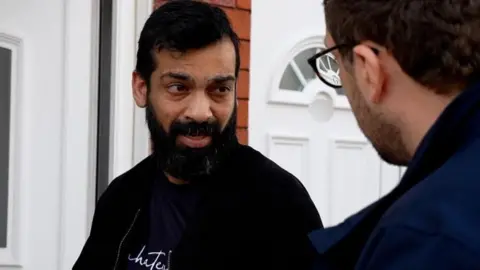 BBC
BBCOverseas workers hired to look after elderly and vulnerable people claim to have faced threats, exploitation and a "climate of fear" at a care home company.
Employees at Lotus Care, which runs 10 care homes across north-west England, said they were often forced to work double shifts because of staff shortages, were denied sick leave, were underpaid and threatened with deportation if they complained.
They also alleged they were charged thousands of pounds for free work visas by a Merseyside agency that helped to arrange the jobs.
Lotus Care denied malpractice allegations and said its recruitment processes "adhere strictly to industry standards and the legal requirements" of the sector.
The firm said it was "committed to upholding the highest ethical standards" and "unaware" of any visa fees being paid by migrant workers, saying it paid the Home Office for the relevant paperwork itself.
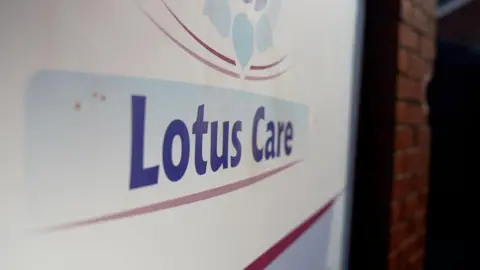
The Care Quality Commission (CQC) rated the care at five of the company's facilities "inadequate" or "requires improvement" in recent years.
In 2022 at Cressington Court in Liverpool, the CQC found a resident had not been bathed for four weeks and another had lost six stone in six months.
And last year, in what was its sixth inspection in a row, the CQC found "overwhelming failures" at Finch Manor, also in Liverpool.
The firm previously said it was working to address the issues raised by the CQC and improvements had been recorded by inspectors at two homes in the last 12 months.
However, a male migrant worker, who spoke to the BBC as part of its eight-month investigation, said he remained concerned.
"There's constant pressure and there's a climate of fear because management use the threat of cancelling visas and deporting staff to silence any complaints," he said.
A female migrant added that she "can't stand the mental stress".
"They put more and more work on us," she said. "If anyone is calling in sick, we have to do double shifts. It's too much – it's like torture."
A second female migrant worker told the BBC her friend had been ill and she had been "shouted at and threatened, she was told she needed to go to work".
The BBC has seen messages from a WhatsApp group set up by Lotus Care's management to communicate with dozens of overseas staff.
In several messages, the migrants are told their licence to work, also known as a certificate of sponsorship (CoS), will be "revoked".
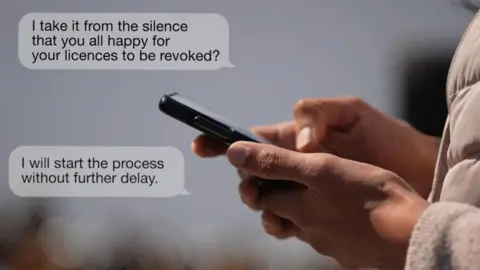
If a CoS is cancelled, overseas workers have 60 days to find a new employer before they are deported.
"I take it from the silence that you all happy for your licences to be revoked? I will start the process without further delay," the firm's owner, Jaydeep Patel, told the group in one message.
In another message, sent after a period of hot weather last year, a senior Lotus Care manager said calling in sick for a fever was "unacceptable", and told the workers to "take paracetamol".
Mr Patel added: "40 degrees back home in India!!"
Lotus Care said the messages were "selective" and they had been shared by "disgruntled staff members" who "left the service under investigation".
Some migrant workers told the BBC the messages and the pressure they put them under affected their ability to work.
'A wad of cash'
The migrants spoken to by the BBC were all placed with Lotus Care through a Merseyside care agency.
A whistleblower, who formerly worked at the agency, said she had witnessed "more than 100" migrants arriving at the office between 2022 and 2023.
They were going there to make cash payments for CoS, the whistleblower said.
She told the BBC she had seen one migrant "handing over a wad of cash in an envelope".
"It was obviously thousands of pounds," she said. "A few months later, I saw she was working in a Liverpool care home.
"If they all paid £10,000 per person, that's hundreds of thousands of pounds."
She said two bosses at the agency were "making lots of money", driving expensive cars and taking expensive holidays.
"They were making a lot of money, you could see the newer cars they were driving, the bigger holidays they were going on," she said.
Charging workers for CoS is illegal.
The government said the cost, which is £284, should be covered by the employer.
"These migrant workers travelled halfway across the world for a new life and they just looked terrified," the whistleblower added.
"Some of the conditions they were to sent to work in were terrible.
"It's just very sad, the new life that they'd hoped for they didn't really get."
The care agency denied the allegations.
However, the BBC was told last year that a former senior staff member, Shyam Prabhakar, was actively involved in the illegal sale of care visas.
Mr Prabhakar, the director of several takeaway businesses in Liverpool, described himself as a "recruitment consultant" in documents filed with Companies House.
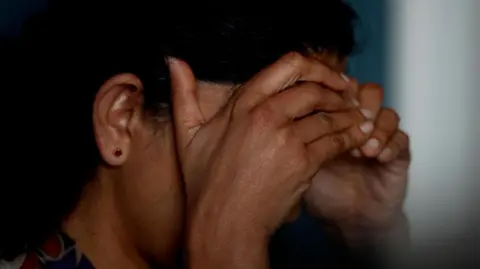
In a secretly recorded call with a researcher posing as a potential client, Mr Prabhakar spoke of care home jobs in Leicester, Peterborough, Kettering and Wrexham.
He indicated that the fee for a CoS, and a job, would be between £11,500 and £12,000
"Once the interview is done and you get the offer letter, you pay half. And before we give the CoS, you should pay the remaining," Mr Prabhakar said.
The researcher asked whether the job was "guaranteed" if the money was paid.
Mr Prabhakar said: "Yeah, yeah, yeah."
When confronted about the allegations outside his home, Mr Prabhakar told the BBC: "I didn't do anything."
He said that someone might have been "framing" him.
'Ripe for exploitation'
Citizens Advice said the exploitation of care workers was something it heard about regularly.
"Every month we're seeing about 120 people in our advice centres," said Citizens Advice policy manager David Mendes da Costa.
"Our advisers often see people that have spent thousands of pounds - often more than £10,000 - in order to get a visa and a job in the care sector.
"They think it's going to pay well and they've been told they'll get good hours and good treatment.
"But when they arrive, they find out that the hours aren't there. [They] have pay withheld, and they're often treated worse than British employees."
Workers with a CoS are reliant on their employer for continued sponsorship to remain in the UK.
"This puts the employer in a huge position of power and that's why it's really ripe for exploitation," said Mr Mendes da Costa.
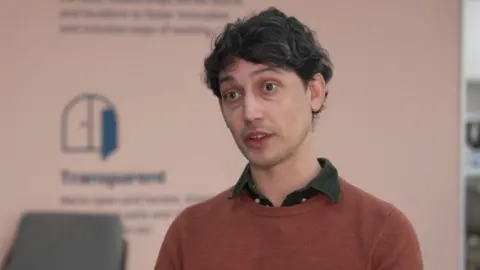
He added: "People don't want to raise problems because they know if they're dismissed, they'll not just lose their job, they'll also lose their right to stay in the country."
Industry body Skills for Care estimated that around 185,000 people were recruited from overseas on health and social care visas between March 2022 and March 2024.
A recent Unison survey of more than 3,000 migrants working in the care sector was told almost a quarter had paid illegal visa fees.
Many of those surveyed reported abuse from their employers.
Andy Brown, a senior investigator at the Gangmasters and Labour Abuse Authority, told the BBC: "In the first quarter of last year, 61% of all our reports were concerning abuse in the adult social care sector."
Mr Brown said abuse was often "in plain sight" and urged the public to look out for signs.
He said: "If they're visiting relatives, the biggest one to look out for is people working excessive hours and rarely having any days off. So you'll regularly see the same face.
"Scavenging for food or asking for food is another [sign], as is not being very social, and having little interaction with others."
A Home Office official said: "Allegations of visa abuse are taken incredibly seriously and will always be investigated thoroughly."
The spokesman said the government was working to take action "against employers who abuse the visa system, with tough measures that will ban businesses who flout UK employment laws from sponsoring overseas workers".
Listen to the best of BBC Radio Merseyside on BBC Sounds and follow BBC Merseyside on Facebook, X, and Instagram, and watch BBC North West Tonight on BBC iPlayer.
